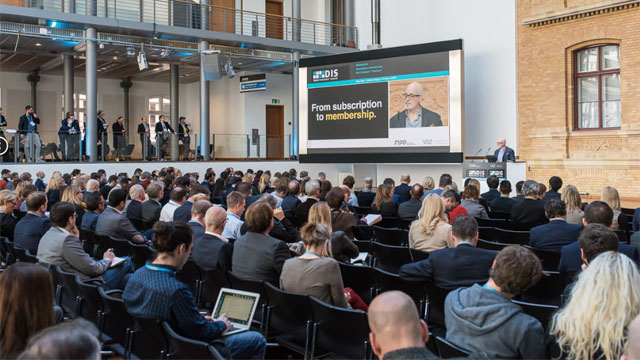A B2B media business without at least one conference is leaving money on the table. But too many established conferences are just not attracting as many paid delegates as they should. From my past decade (or so) running my own conferences, advising publishers on how to grow their event revenues, and interviewing the leaders in event marketing, here’s what you need to do to sell more conference tickets and maximise your paid delegate revenues.
1. Start planning at least a year in advance
Conferences grow organically, based on conversations with thought leaders and founder partners. Trying to cobble a good event together in three months will only lead to disaster.
2. Define your target audience – and what you think is your proposition
Have a very clear target market, maybe several connected segments, and be razor sharp on what is the business benefit of attending the event.
3. Interview a representative sample of your audience
Talk to at least thirty (and ideally more) prospective delegates on the phone or face to face. Find out what their major concerns are, and which organisations and people they want to hear from. Do this for existing events as well as new launches – markets change, competitors launch, you have to evolve.
4. Gather an advisory board to prioritise topics
Assemble some key influencers from the market to discuss the findings from your research and agree which are the most important topics, and what format will deliver value to attendees. This group will help you find speakers, and provide credibility, especially for a new event.
5. Start inviting speakers early
Build up a (long) wish list of speakers for each topic or session. Start at least 6 months in advance, and begin with people you know, or who are contacts of your advisory board. Early confirmations are taking a risk on the event, but they are crucial to build credibility and persuade other speakers to come on board. Take your time, and be prepared to approach lots of people, building on contacts as you go.
6. Plan how to grow your database
You need at least 50 contacts (and ideally 100) per target paid delegate. As a media brand you have a head start here. Analyse your database and create a plan to fill in the gaps. Encourage your partners and advisory board to contribute contacts and use your digital presence to encourage people to register interest.
7. Build a good event website
An event website is the best marketing brochure when you are building up partners and speakers. It needs to project your expertise and credibility, so it has to be live at least 6 months before the event. Make it easy for delegates and sponsors to register interest, and get the URL shared by your network and media partners. Set up the online booking system well in advance.
8. Source key partnerships and sponsors
Set up media partners and agreement with industry associations and major sponsors up to a year before the event. They will make introductions and help find speakers.
9. Plan your social media & email marketing
For many B2B conferences, around 80% of tickets are bought online, and interested prospective delegates will spend a lot of time reviewing the website and your marketing before they finally make their decision to book. Have a comprehensive digital marketing campaign, based on content and social media as well as email marketing. Telemarketing has its place but it’s more cost effective to sell delegate tickets online.
10. Use your network
Speakers, advisory board, partners, sponsors, staff, past delegates…. All have industry contacts and can suggest speakers and people to add to your database. Make it easy for them to spread the word, with good marketing content and discount codes.
11. Analyse what’s working
During the campaign, monitor what’s working: which sources drive traffic, who’s booking, what content they clicked on, the subject lines that drive response… Event marketing has to be responsive and flexible, so keep some budget in reserve for doubling down on the activity that works.
12. Enlist sponsor support
Sponsors have valuable databases, and they want the event to succeed, so enlist them to market on your behalf, making it easy for them to share marketing content with their audiences.
13. Build momentum
Make a noise about your speaker line-up, your sponsor support, the people who have already booked. Conferences are largely about networking, and no-one wants to feel they have missed the flagship industry event.
14. Deliver an excellent event
Coach your speakers to ensure their content meets the needs of delegates and is professionally delivered. Explain to your sponsors that they have to deliver useful content, not a sales pitch. Run the event to time, rehearse to avoid technical problems, and provide good catering, and plenty of networking time.
15. Call up delegates and listen to their feedback
Talk to delegates soon after the event – get some candid feedback. Online surveys with tick boxes don’t tell the whole story. What would they like to see and who do they want to hear from next year?
16. Analyse the marketing
Track what prompted traffic, clicks, reads, enquiries and sales. Learn which audiences showed up and who stayed away.
17. Start all over again….
The marketing for next year’s event starts now….
This guide is based on my own experiences running events and learning how to sell more conference tickets. If you want to chat about how you might be able to grow your events revenues, please get in touch.
About the author
Carolyn Morgan has bought, sold, launched and grown specialist media businesses across print, digital and live events. A founder of the Specialist Media Show (sold in 2014) she now advises media businesses large and small on their digital strategy through her consultancy Speciall Media.

